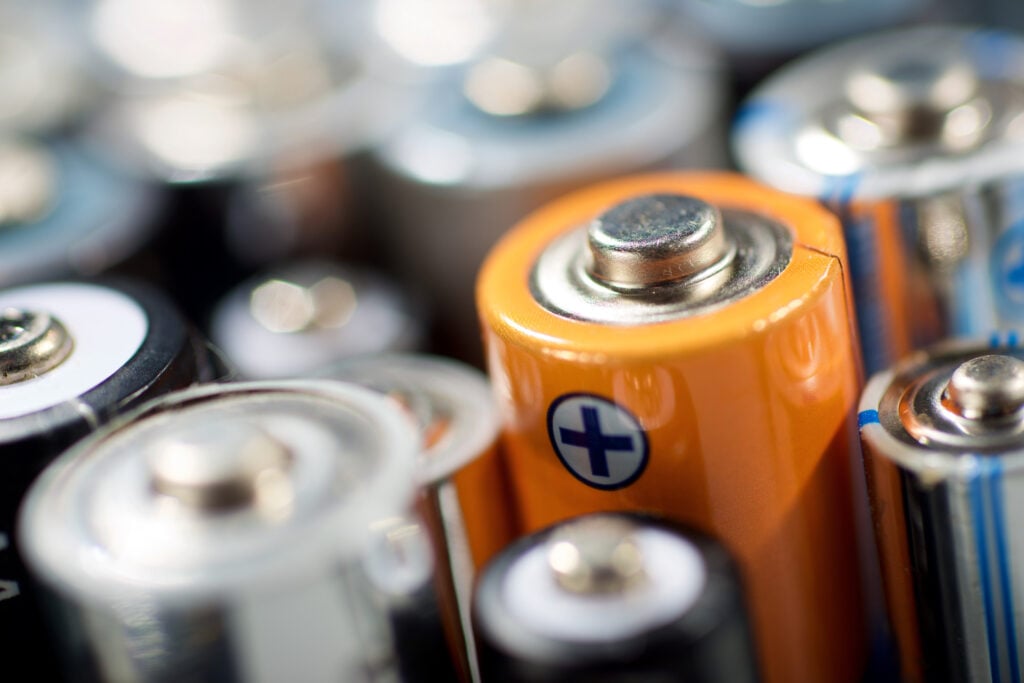
Every year on February 18th, National Battery Day commemorates both the invention and importance of batteries in our daily lives. From powering our smartphones to keeping our cars running, batteries are indispensable. However, as essential as they are, batteries can also pose significant risks if mishandled or misused. That’s why the Las Vegas personal injury lawyers at ER injury attorneys are here with the top five battery injuries you need to know about–and how to avoid them.
1. Chemical Burns from Leaking Batteries
Batteries, especially the alkaline and lithium-ion varieties, contain corrosive chemicals that can cause severe chemical burns if they leak. When a battery is damaged, overcharged, or improperly stored, it can rupture, releasing harmful substances like potassium hydroxide or sulfuric acid.
Injury Prevention Tips:
- Inspect batteries regularly for signs of damage, such as swelling or leakage.
- Store batteries in a cool, dry place and avoid exposing them to extreme temperatures.
- If a battery leaks, handle it with gloves and dispose of it properly according to local regulations.
If you or a loved one suffers a chemical burn from a battery, seek medical attention immediately. In some cases, these injuries may result from defective products, and you may have grounds for a legal claim.
2. Explosions and Fires from Lithium-Ion Batteries
Lithium-ion batteries, commonly found in smartphones, laptops, and electric vehicles, are known for their high energy density. However, this also makes them prone to overheating, which can lead to explosions or fires. These incidents often occur due to overcharging, physical damage, or manufacturing defects.
Injury Prevention Tips:
- Use only manufacturer-approved chargers and avoid overcharging devices.
- Replace damaged or swollen batteries immediately.
- Never expose lithium-ion batteries to high temperatures or direct sunlight.
If a lithium-ion battery explosion causes burns, property damage, or other injuries, consult an experienced attorney to explore your legal options.
3. Swallowing Button Batteries
Button batteries, commonly used in small devices like watches and remote controls, pose a serious choking hazard, particularly for young children. If swallowed, these batteries can get stuck in the esophagus and cause life-threatening injuries, including tissue burns and internal bleeding.
Injury Prevention Tips:
- Keep button batteries out of reach of children and store them in child-proof containers.
- Secure battery compartments in devices with screws or tape to prevent easy access.
If you suspect a child has swallowed a battery, seek emergency medical care immediately.
Manufacturers and retailers have a responsibility to ensure their products are safe for consumers. If a child is injured due to a defective or poorly designed product, you may have a valid personal injury claim.
4. Electrical Shock from Improper Handling
Batteries, especially larger ones like car batteries, can deliver a powerful electrical shock if mishandled. This often occurs when someone attempts to jump-start a vehicle or replace a battery without proper knowledge or precautions.
Injury Prevention Tips:
- Always wear protective gloves and eyewear when handling batteries.
- Follow the manufacturer’s instructions for jump-starting a vehicle or replacing a battery.
- Avoid touching both terminals of a battery simultaneously, as this can create a circuit and cause a shock.
If you suffer an electrical shock due to someone else’s negligence, such as a mechanic’s improper installation, you may be entitled to compensation for your injuries.
5. Environmental Exposure and Toxicity
Improper disposal of batteries can lead to environmental contamination and health risks. Batteries contain heavy metals like lead, cadmium, and mercury, which can leach into soil and water, posing a threat to both humans and wildlife.
Injury Prevention Tips:
- Recycle batteries at designated collection points rather than throwing them in the trash.
- Educate yourself about local battery recycling programs and regulations.
- Avoid burning batteries, as this can release toxic fumes.
If you’ve suffered health issues due to environmental exposure from improperly disposed batteries, you may have a case against the responsible parties.
Suffered Battery Injuries? Work with ER Injury Attorneys Today
The Las Vegas injury lawyers at ER Injury Attorneys are here with the information you need about battery injuries. We’re also here for you if you’ve been injured through no fault of your own. Our dedicated team of personal injury attorneys is ready to help with the claim process and build a strong case for financial compensation.
ER Injury Attorneys is available to assist you 24 hours a day, 7 days a week. You can reach us right now by dialing 702-878-7878 or online through LiveChat. You can also fill out this contact form. ER Injury Attorneys represents accident victims throughout Southern Nevada, including Henderson, Summerlin, Pahrump, Boulder City, Laughlin, and beyond. Get in touch with us today to get the legal advocacy you need.
